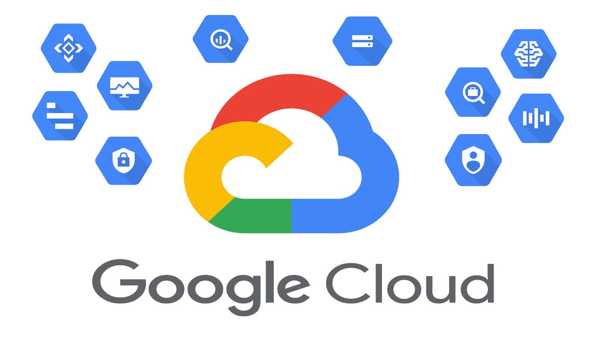How to get a mortgage in 2024 A step-by-step guide
Embarking on the journey to homeownership in 2024 is an exciting venture, but it often involves navigating through a maze of financial decisions and paperwork. As you set your sights on that dream home, understanding the intricacies of securing a mortgage is crucial.
Embarking on the journey to homeownership in 2024 is an exciting venture, but it often involves navigating through a maze of financial decisions and paperwork. As you set your sights on that dream home, understanding the intricacies of securing a mortgage is crucial.
This guide takes a conversational and simplified approach to break down the process into manageable steps. Whether you're a first-time buyer or a seasoned homeowner, our top 4 tips and additional guides will help you navigate the evolving landscape of mortgage acquisition with confidence and ease.
Check Your Credit Score: The Credit Report Decider
Your credit score is the gatekeeper when it comes to getting a mortgage. Lenders use it to evaluate your creditworthiness, so the first step is to check your credit score. Websites like Credit Karma or AnnualCreditReport.com can help you get a free copy.
Suppose your score is stellar, great! If not, don't panic. There are still options available, but a higher score generally means better interest rates. If you find any errors in your report, dispute them right away. A clean credit report sets the stage for a smoother mortgage journey.
Save Up for a Down Payment: The Savings Stash

Let's talk money. Most lenders will require a down payment, a percentage of the home's purchase price you pay upfront. While the traditional 20% down payment is standard, there are loans with lower down payment options, sometimes as low as 3%.
Start squirreling away those funds in a separate savings account. It shows your ability to save and helps when you need to cover closing costs. The more you put down, the better it reduces your loan amount and monthly payments.
Understand Your Budget: The Spending Plan
Before you start shopping for homes, it's crucial to understand what you can afford. Your debt-to-income ratio (DTI) plays a significant role here. It's the percentage of your monthly income that goes towards paying debts.
Typically, lenders prefer a DTI of 43% or lower. To calculate yours, add up all your monthly debts (credit cards, car loans, student loans) and divide that by your gross monthly income. This gives you a clear picture of how much you can afford without drowning in debt.
Shop Around for Lenders: The Loan Hunt
Not all lenders are created equal; the same goes for mortgage options. It pays to shop around and explore various lenders to find the best deal for your situation. Local banks, credit unions, and online lenders have different offerings.
Get quotes from multiple lenders and compare the interest rates, loan terms, and fees. Don't be afraid to negotiate or ask questions. A mortgage is a long-term commitment, so finding the right fit for you is crucial.
Organize Your Financial Documents: The Paperwork Party
Get ready to gather and showcase your financial life. Lenders will want to see many documents, including tax returns, W-2s, pay stubs, bank statements, and any additional sources of income. Organizing these documents and ready to go will speed up the mortgage process.
Create a checklist to ensure you have everything needed. If you're self-employed or have a unique financial situation, be prepared to provide additional documentation. The smoother you can make this paperwork party, the faster you'll get mortgage approval.
Factor in Closing Costs: The Sneaky Expenses
Closing costs are the often-overlooked expenses that come with finalizing your home purchase. They can include fees for appraisals, inspections, title searches, and more. Budgeting for these costs, in addition to your down payment, is essential.
Ask your lender for a Loan Estimate, which breaks down the expected costs. This will help you avoid any surprises on closing day. Some closing costs are negotiable, so don't hesitate to discuss them with your lender and see if there's any room for adjustment.

Stay Patient and Flexible: The Waiting Game
Once you've submitted your mortgage application, it's time to play the waiting game. The approval process can take time, and requests for additional information might occur along the way. It's crucial to stay patient and be ready to provide any necessary updates promptly.
In the meantime, avoid making major financial decisions or changes. This is not the time to open new credit accounts or make large purchases, as it can impact your creditworthiness. Stay flexible with your timeline, and remember that good things come to those who wait.
Consider Mortgage Insurance Options: The Protection Plan
Depending on the size of your down payment, you may be required to purchase mortgage insurance. This insurance protects the lender in case you default on the loan. It's an additional cost, but it can make homeownership more accessible, especially for those with smaller down payments.
There are different types of mortgage insurance, including Private Mortgage Insurance (PMI) and Federal Housing Administration (FHA) Mortgage Insurance Premiums. Explore these options with your lender, understand the costs, and factor them into your budget. Remember that once you've built enough equity in your home, you may be able to cancel or refinance to eliminate the need for mortgage insurance.
Plan for Homeownership Costs: The Post-Mortgage Budgeting
Owning a home comes with more expenses than just the mortgage payment. You'll also need to budget for property taxes, homeowners insurance, utilities, and ongoing maintenance costs. Planning for these additional expenses is essential to afford your new home comfortably.
Research property tax rates in your area and get quotes for homeowners insurance to estimate these ongoing costs. Setting aside a separate fund for home maintenance can help you handle unexpected repairs without straining your budget. Understanding the complete financial picture of homeownership will prepare you for the responsibilities after you've secured your mortgage.
Conclusion:
As you reach the end of this guide, you're armed with a comprehensive understanding of the critical steps in securing a mortgage in 2024. From checking your credit score and saving for a down payment to shopping for lenders and understanding the additional costs, you've gained insights that will serve you well on your homeownership journey.
Remember, patience and flexibility are your allies, and staying informed about the various aspects of mortgage acquisition will empower you to make sound financial decisions. May your path to homeownership be smooth and your new home be a place where memories flourish.








